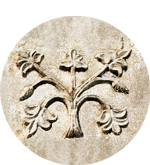Запускается новый проект: греческие рукописи в Швеции
В рамках нового проекта “Greek Manuscripts in Sweden” будут оцифрованы и каталогизированы около 120 греческих манускриптов, хранящихся в семи библиотеках и музеях Швеции.
В рамках нового проекта “Greek Manuscripts in Sweden” будут оцифрованы и каталогизированы около 120 греческих манускриптов, хранящихся в семи библиотеках и музеях Швеции.
The aim of this project is to digitize and catalogue all the Greek manuscripts in Sweden. Around 120 Greek manuscripts are kept in Swedish libraries, but only a few of them have up to now been available in digital form online. The project will remedy this; the fully digitized manuscripts and the new catalogue descriptions will be made accessible via the Uppsala University Library digital platform. Libraries that contribute material to the database include Gothenburg University Library (4 MSS), Linköping Diocesan Library (29 MSS), Lund University Library (5 MSS), Nationalmuseum, Stockholm (1 MS), The Royal Library, Stockholm (5 MSS), The Skokloster Castle Library (3 MSS), and Uppsala University Library (74 MSS). The project is run by two researchers, Dr. Eva Nyström and Dr. Patrik Granholm, in collaboration with photographers and computer specialists at Uppsala University Library. The Central Bank of Sweden Tercentenary Foundation has contributed financial support.
The Greek manuscripts, in the form of bound parchment and paper volumes, include a rich and diverse collection of texts from antiquity and the Byzantine period. They originate mainly from the Byzantine cultural area from the tenth century onwards, but some are Renaissance or early modern manuscripts from Western Europe. The existing nineteenth-century catalogue is outdated and in many cases incorrect. Furthermore it does not cover all manuscripts. It is therefore essential to create a new catalogue according to modern principles, including detailed codicological descriptions. Combined with a comprehensive digitization of the manuscripts this will facilitate and encourage new research on the material among Swedish and international scholars. The catalogue will be fully searchable by the encoding in TEI P5, which is an XML-based metadata standard for manuscript cataloguing.
Дата
9 января
2014
Рубрики
В статье упомянуты

